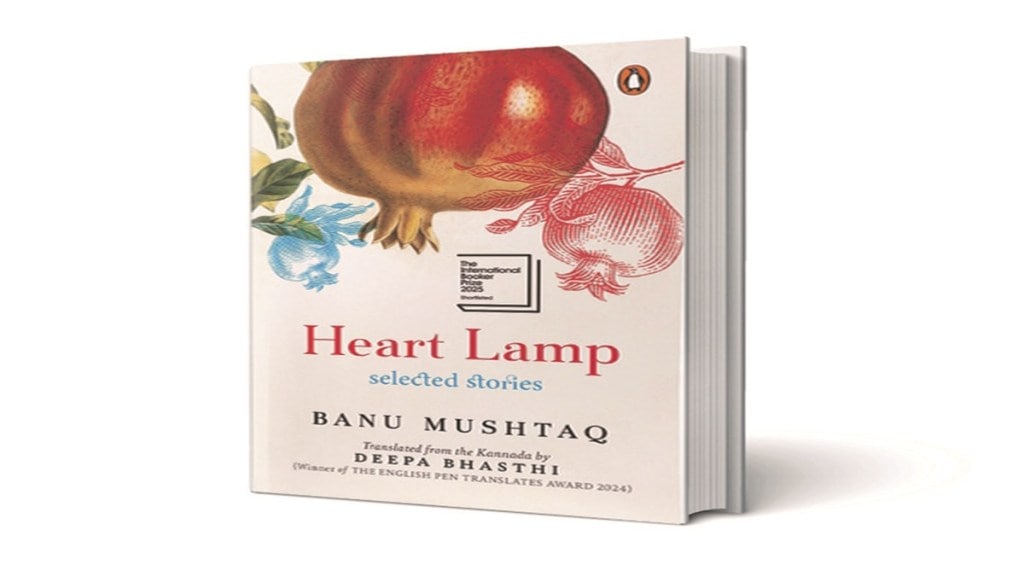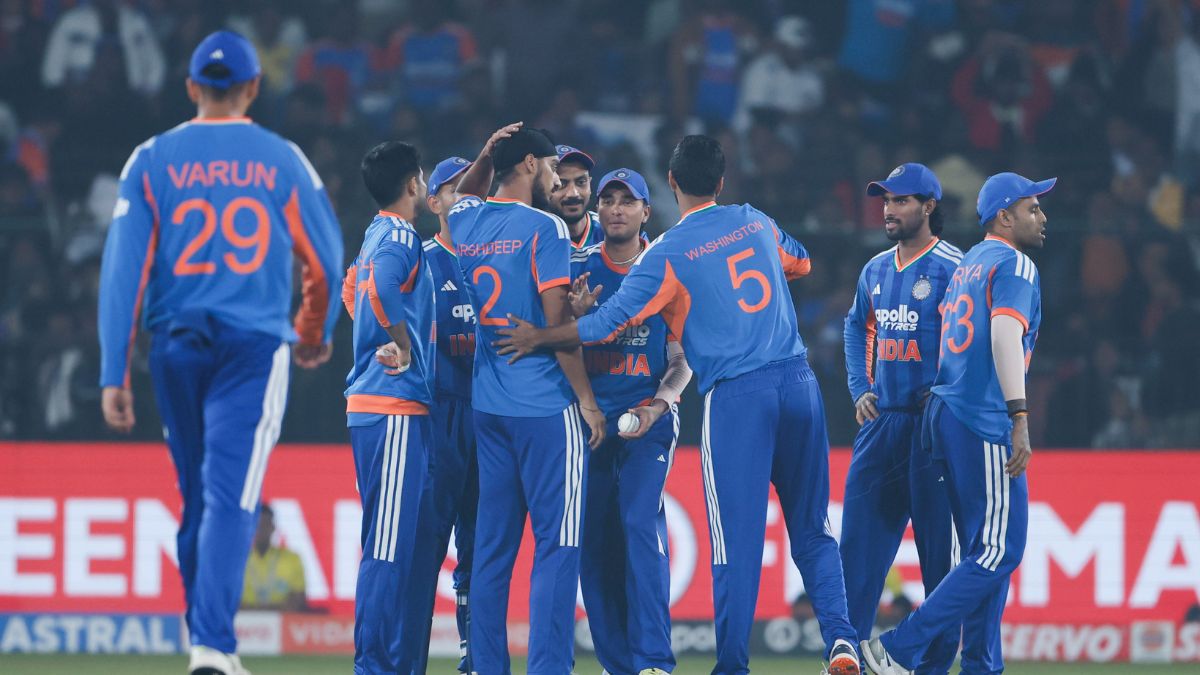Brought up in a large middle class family in Hassan, Karnataka, Banu Mushtaq attended an Urdu medium school, but she wanted more. That more was Kannada everyone around her spoke. When her father managed her admission into a Kannada medium school, Mushtaq began to furiously learn the language, soon writing stories on the walls of her class. It was the early ’60s and as a Class VII student she even wrote a whole novel in her science exercise book. Mushtaq’s selection on the shortlist of the 2025 International Booker Prize this week for her collection of Kannada short stories, Heart Lamp, translated into English by Deepa Bhasthi, caps half-a-century of writing, most of which is about the everyday life of women in Muslim families. A women’s rights activist and practising lawyer, Mushtaq, 77, carried on her own struggles to educate and empower herself, helping victims of gender violence in courts and reflecting those combined experiences into words and stories that could help bring change. Mushtaq talks about her career and what the new recognition means to Indian languages and literature. Edited excerpts:
You faced the effects of conservatism as a young married Muslim woman who was not allowed to go out or work. How did these struggles help you become a writer?
The condition put forward during my marriage was I should resign from my job as a school teacher, which I did. I had to stay at home, which I started resisting. My husband hailed from a business family. They were comfortable, but I was not. I wanted to do something with my intellect. I started agitating. My husband was the eldest son and was cornered. So we had to come out of that family.
When did you publish your first short story?
I had sent a short story to the editor of the famous Kannada magazine Prajamata a year before my marriage in 1974. The story was published after my marriage. Heart Lamp, which is part of the collection of 12 short stories translated into English by Deepa (Bhasthi) under the same title, contains stories written from the ’90s. I have so far published six collections of short stories, two novels, one collection of poems, two collections of essays, among others. Recently, 50 of my short stories were compiled into a collection and published in Kannada as Haseena and Other Stories. Haseena was also adapted into a movie (Hasina) by Kannada director Girish Kasaravalli and it won three National Film Awards, including Best Actress for Taara and Best Film on Family Welfare, in 2004. Haseena and Other Stories was published because many research students in Kannada literature wanted the complete works of mine in one place. The collection of stories in Heart Lamp is the first English translation of my work.
How important was it for you to write about characters from Muslim families, mostly young women?
When I started writing, there were no footprints in Kannada literature for me to follow as a lot of Muslim writers wrote in the tone of Brahminical writers. Hindu writers portrayed Muslim characters as either too good or too bad. There were a lot of movements during the ’80s in Karnataka. There was the Kisan movement, theatre activism, feminist movement and also a literary movement, called Bandaya Sahithya Sangatana. I was actively involved in all these movements and worked as a state commissioner for the Bandaya Sangatana. It was a rebellious literary movement about gender and class that said what an ideal society should be. We wanted an ideal society and started reporting our thinking through our literature, poems and theatre. There were a set of new generation writers like me, who wanted to write, but didn’t know what we wanted to write. The progressive movement held extensive workshops for us. I would ask the movement’s leaders, I know Muslim culture but I don’t know what to write. They said you write what you see around and about you.
Do you often discover the characters of your stories from within your work as a women’s right activist and lawyer?
Yes. Once a young woman who helps us at our home told me she was forced to remove her hijab at a hospital when she went to visit an ailing relative. For me she is a character. I feel her pain. The discrimination meted out to a woman and a system that asks you to adjust to the whims and fancies of your husband is wrong.
How has your writing evolved since then, especially in the past one decade?
My writings changed after the demolition of Babri Masjid in 1992. Earlier as a feminist I always challenged gender practices in the Muslim community, the patriarchal society of Muslims. But after the demolition of Babri Masjid, I changed my approach. I am worried about the political representation of Muslims. I am worried about the hijab issue. The patriarchal system exists, but more than that I should give importance to the aspects of communalism, which is haunting Muslims and leading to violence against them. I am challenging these issues. It has brought changes in my writing.
Is there anything that is taboo when you are narrating stories about the Muslim community? Anything that limits your artistic freedom?
I am restricted by Muslim fanatics and also by Hindu fanatics. When I mentioned recently in a speech that you should not be silent and the silence of Bhishma was the main cause of The Mahabharata, I was criticised for being a Muslim woman criticising Hindu religion. But there are progressive writers who often come to my rescue. When I wrote about the experiences of a male-oriented Muslim community and various other rituals that are followed in the Muslim community, some Muslims were offended. My intention was to bridge the gap between these two communities. When I wrote a short story, Red Lungi, it was not meant to offend Muslims, but to talk about a practice in which a red lungi is wrapped around the waist of Muslim boys after they are circumcised. Dalits, women and the poor face many issues. I study their issues to support them. Even during the hijab issue in Karnataka, I wrote an open letter to the girls in Mangalore and Manipal requesting them not to discontinue their studies. I will soon write another open letter on the Waqf Amendment Bill passed by Parliament.
What does the International Booker Prize shortlist mean to the portrayal of minorities, and what does it mean to you?
It was unexpected. But my imagination works for the Nobel Prize. I was imagining the Nobel Prize, not the International Booker Prize shortlist (laughs). The people of Karnataka are celebrating the shortlist announcement. All the Kannadigas want the International Booker Prize for us.
But some people want to spoil the entire atmosphere with the ulterior motive to garner votes. Provoking the public is the only strategy by which rulers get approval from the people. But it just divides the people. The Muslim community also has to educate itself in a proper way and not just acquire degrees. They need political awareness, which is lacking.
Heart Lamp is the first Kannada book to be shortlisted for the International Booker, and follows the prize for Hindi writer Geetanjali Shree’s Ret Samadhi (Tomb of Sand) and Tamil writer Perumal Murugan’s longlisted Pookkuzhi (Pyre). Is this a recognition of the strength of Indian language storytelling?
The writing in Indian languages is very powerful, especially the storytelling, narration and techniques, that too with colloquial language. In our place we talk Dakhni Urdu (Deccani Urdu which is a mix of Urdu, Kannada, Marathi and Telugu). But Dakhni Urdu in Hyderabad (Telangana) or Gulbarga and Hassan (Karnataka) are different from each other because each one is full of local words.
You have been a Kannada writer for more than 50 years. However, not many of your books have been translated into other Indian languages or English.
None of my works has been translated, except in Malayalam and Punjabi. Most of my stories have been translated into Malayalam. We need more translations of our writers in Indian languages. Translations are essential to interpret our cultures, our thoughts, our way of life. The Western world, too, needs to know about us. For long we have been trying to understand the Western world. Now it is necessary for them to understand us by looking at our art, our literature, our dance and our thinking.
Faizal Khan is a freelancer.
Heart Lamp: Selected Stories
Banu Mushtaq
Translated by
Deepa Bhasthi
Penguin Random House
Pp 224, Rs 399








